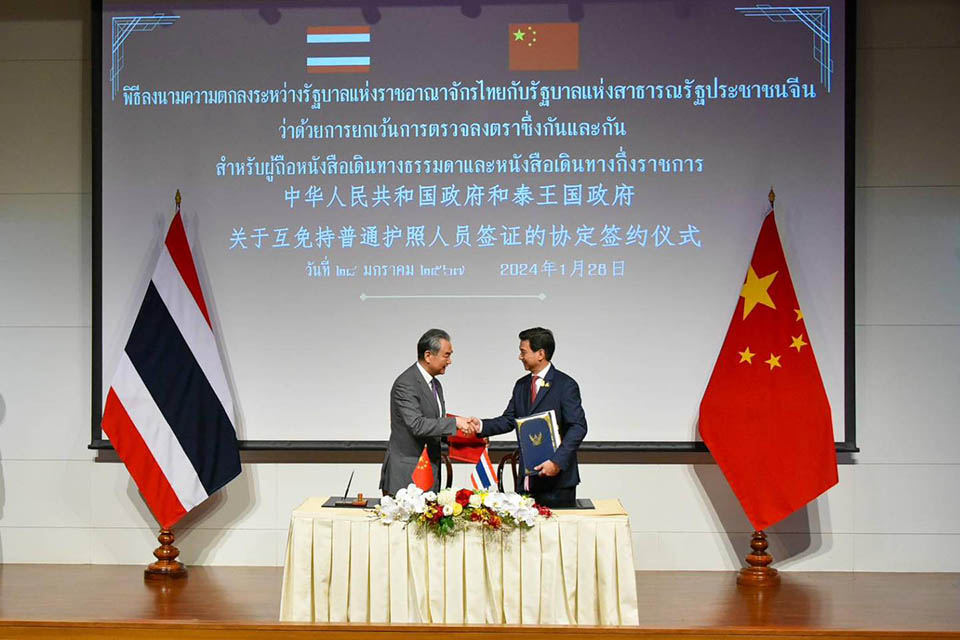
After Thailand and China signed a mutual visa exemption on Sunday (Jan 28), the agreement will have a significant impact on stimulating the economy, not only in terms of trade or investment but also greatly improving tourism, leading to increased income for Thai entrepreneurs, Thai Prime Minister and Finance Minister Srettha Thavisin has posted on the X platform.
Thai Foreign Minister Parnpree Bahiddha-nukara and his Chinese counterpart Wang Yi signed the mutual visa exemption for holders of ordinary passports and passports for public affairs, which takes effect on March 1, after a meeting in Bangkok, marking a pivotal moment in their bilateral relations.
Wang Yi is scheduled to meet the Thai Prime Minister today (Jan 29) at the Government House.
The economic perspective on this agreement is emphasized by Salil Totubthieng, Chairman of the Chamber of Commerce in the Southern Provinces on the Andaman Coast, who expressed optimism that the eased travel between the two countries will particularly boost tourism in the Andaman coastal provinces, making it easier for Chinese tourists to visit Thailand.
However, concerns have been raised about the limited flights and high prices for routes from Bangkok to popular tourist destinations in the south such as Phuket and Krabi. He urged the government to address the issues.
Looking towards long-term prospects, suggestions have been made for the government to explore collaborations with neighboring Muslim-majority countries like Malaysia and Indonesia. This could involve promoting Muslim-friendly tourism to attract visitors from the Middle East as well. (TNA)








